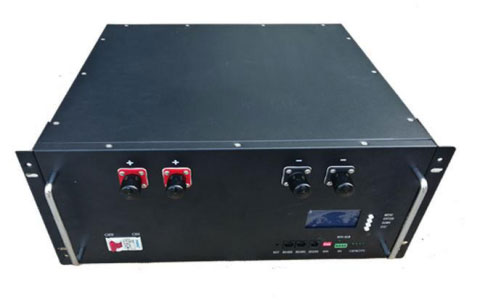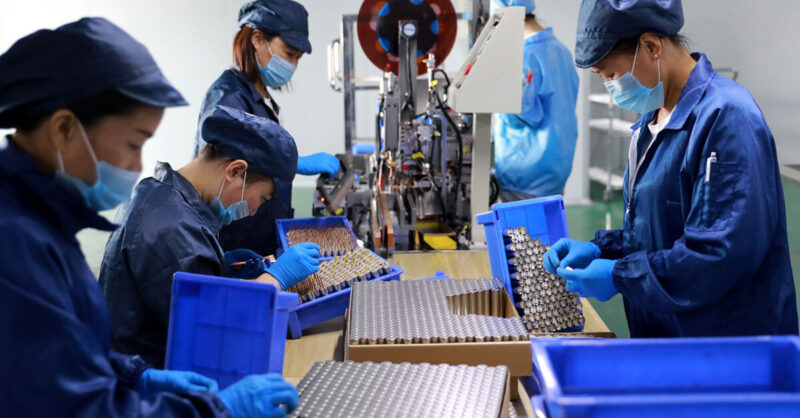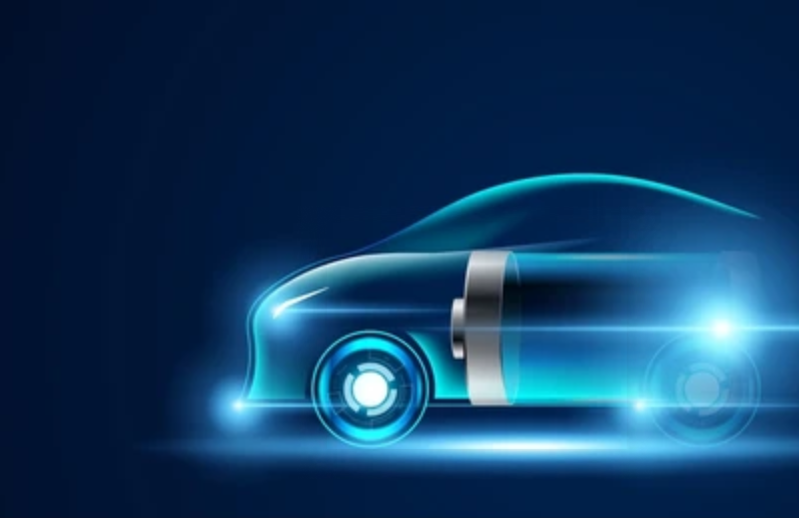How to Choose the Right Starter Battery Supplier for Your Needs
Choosing the right starter battery supplier is essential to ensure that you have access to high-quality products that meet your specific needs. With so many options available, it can be overwhelming to know where to start. Here are some key factors to consider when selecting a starter battery supplier for your needs:
Quality: The quality of the starter batteries offered by the supplier should be your top priority. Ensure that the supplier sources their batteries from reputable manufacturers and that they meet industry standards for performance and reliability.
Price: Price is always an important factor to consider when selecting a supplier. While it is important to find a supplier who offers competitive pricing, be cautious of suppliers who offer unrealistically low prices, as this could indicate poor quality or unethical practices.
Range of products: Consider whether the supplier offers a range of starter batteries to meet your specific needs. Look for suppliers who offer a variety of battery sizes and types, as well as batteries designed for different applications.
Customer service: It’s important to choose a supplier that provides excellent customer service. Look for suppliers who are responsive to your inquiries and concerns and have a reputation for providing timely and efficient support.
Delivery times: Consider the supplier’s delivery times and their ability to meet your specific needs. Look for suppliers who offer fast and reliable shipping, and who have a reputation for meeting delivery deadlines.
Warranty: Check whether the supplier offers warranties on their products. A supplier who offers a warranty demonstrates confidence in their products and provides peace of mind for the customer.
Reputation: Finally, consider the supplier’s reputation in the industry. Look for suppliers who have a track record of providing high-quality products and excellent customer service.
By taking these factors into consideration, you can choose a starter battery supplier that meets your needs and provides you with high-quality products and services.
Time: 2023-6-16
The growing demand for renewable energy solutions has led to an increase in the use of lithium iron phosphate (LiFePO4) batteries. These batteries are known for their high energy density, long cycle life, and safety. Among the most popular LiFePO4 batteries are 100Ah LiFePO4 batteries, which are widely used in electric vehicles, energy storage systems, and solar applications. The price of 100Ah LiFePO4 batteries varies depending on several factors such as the brand, quality, and supplier. Generally, the price of a 100Ah LiFePO4 battery ranges from $800 to $1500. However, it is important to note that the price may fluctuate depending on the market demand and supply. One of the factors that influence the price of 100Ah LiFePO4 batteries is the brand. Top brands such as CATL, BYD, and CALB are known for producing high-quality LiFePO4 batteries with a longer cycle life, high energy density, and excellent safety features. These brands have established a reputation for producing high-performance batteries, which makes them more expensive compared to other brands. The quality of the battery also affects its price. High-quality 100Ah LiFePO4 batteries are designed to provide a longer cycle life, better performance, and higher energy density. These batteries are made with high-grade materials, advanced manufacturing technologies, and strict quality control measures. As a result, they may cost more than batteries of lower quality. The supplier also plays a critical role in determining the price of 100Ah LiFePO4 batteries. Suppliers who have established partnerships with top...
Time: 2023-12-7
In recent years, there has been a significant surge in the development and usage of portable electronic devices. These devices have become an integral part of our daily lives, allowing us to stay connected, entertained, and productive on the go. One of the key factors that have contributed to the success of these devices is the advancement in lithium battery technology. This article will explore the advancements in portable electronic products powered by lithium batteries, highlighting their benefits and limitations. Advancements in Lithium Battery Technology Lithium batteries have revolutionized the portable electronic industry due to their numerous advantages. One of the major advancements in lithium batteries is their energy density. Lithium batteries have a much higher energy density compared to traditional batteries, allowing them to store more energy in the same size and weight. This has enabled manufacturers to create sleek and lightweight devices that are easy to carry and use. Another significant advancement is the improvement in battery life. Lithium batteries have a longer lifespan compared to other battery types, allowing users to use their portable devices for extended periods without the need for frequent recharging. This has greatly increased the convenience and usability of portable electronic products. Furthermore, lithium batteries have a low self-discharge rate, meaning they can hold their charge for longer periods when not in use. This eliminates the need to constantly recharge the device even when it is not being used regularly, enhancing the overall user experience. Benefits of Portable...
Time: 2023-8-12
Introduction The global push towards sustainable transportation has led to a significant rise in the demand for electric vehicles (EVs). However, a major obstacle to their widespread adoption has been the limited battery capacity, resulting in shorter driving ranges and longer charging times. In recent years, the development of the lithium van battery has emerged as a game-changer in the field of EV technology. This article explores the revolutionary potential of the lithium van battery and its impact on the future of electric vehicles. Understanding Lithium Van Battery Lithium van battery refers to a type of lithium-ion battery that utilizes a vanadium-based compound as the cathode material. This unique composition offers several advantages over conventional lithium-ion batteries. Firstly, it significantly increases the energy density, allowing for higher storage capacity within the same battery size. This translates into longer driving ranges for electric vehicles. Secondly, the vanadium-based cathode material improves the battery's charging and discharging efficiency, reducing the time required for recharging. Lastly, this battery type exhibits enhanced thermal stability, minimizing the risk of overheating and improving safety. Improved Energy Density for Extended Driving Range One of the most significant drawbacks of existing EV batteries is their limited energy density. This limitation restricts the distance an electric vehicle can travel on a single charge. However, with the lithium van battery's higher energy density, EVs can achieve greater driving ranges. This advancement eliminates the range anxiety that potential EV owners often face, making electric vehicles a more viable and attractive...
Time: 2023-8-16
Introduction: The demand for high-capacity batteries has grown significantly in recent years due to the increasing need for energy storage in various applications. One such battery that has gained popularity is the High Capacity 12V LiFePO4 Battery with a capacity of 100Ah. This article will explore the features, benefits, and applications of this advanced battery technology. Features: The High Capacity 12V LiFePO4 Battery is designed using advanced lithium iron phosphate (LiFePO4) technology, which offers several key features that set it apart from traditional lead-acid batteries. Firstly, it has a higher energy density, allowing it to store more energy in a smaller and lighter package. This makes it ideal for applications where weight and space are critical factors. Another notable feature of this battery is its longer lifespan. LiFePO4 batteries have a significantly longer cycle life compared to lead-acid batteries, meaning they can be charged and discharged more times before their performance deteriorates. With proper maintenance, the High Capacity 12V LiFePO4 Battery can last up to 10 years, making it a reliable and cost-effective choice for long-term energy storage. Furthermore, this battery offers excellent safety features. LiFePO4 chemistry is known for its exceptional thermal and chemical stability, reducing the risk of fire or explosion. It also has a built-in battery management system (BMS) that provides overcharge, over-discharge, and short-circuit protection, ensuring the battery operates within safe parameters. Benefits: The High Capacity 12V LiFePO4 Battery offers several advantages over traditional lead-acid batteries. Firstly, it has a higher energy...
Time: 2023-6-17
As energy storage technology continues to evolve, more and more people are turning to lithium iron phosphate (LifePO4) batteries for their energy needs. These batteries are known for their high energy density, long cycle life, and low self-discharge rate. With so many different options available on the market, it can be difficult to know which one is right for your needs. In this comprehensive guide, we will break down the different aspects of LifePO4 battery capacity, voltage, and performance. Capacity The capacity of a LifePO4 battery refers to the amount of energy it can store. This is typically measured in ampere-hours (Ah). The higher the capacity, the more energy the battery can store, and the longer it can power your device or system. When choosing a LifePO4 battery, it's important to consider the capacity you will need based on your application. For example, if you are using a battery to power a solar panel system, you will need a higher capacity battery to store the energy collected during the day for use at night. Voltage The voltage of a LifePO4 battery refers to the electrical potential difference between the positive and negative terminals of the battery. This is typically measured in volts (V). The voltage of a battery can affect its performance and compatibility with different devices. Most LifePO4 batteries have a nominal voltage between 3.2V to 3.3V, which is lower than other lithium-ion batteries. This lower voltage can make LifePO4 batteries less compatible with devices...
Time: 2024-11-8
Today, as global climate change and environmental protection become increasingly important, the automotive industry is undergoing a profound transformation. In this transformation, automotive lithium batteries, as the core components of new energy vehicles, are leading the automotive industry into a greener, more environmentally friendly and sustainable future with their unique advantages. This article will provide you with an in-depth understanding of the development history, key technologies, market trends and their impact on the automotive industry and society at large of automotive lithium batteries. 1. Development History of Automotive Lithium Batteries The research, development and application of automotive lithium batteries can be traced back to the end of the last century. With the rapid development of the new energy vehicle industry, lithium battery technology has also made great progress. From the initial lithium cobalt oxide battery, to the later lithium manganese oxide battery, lithium iron phosphate battery, to the now highly anticipated ternary lithium battery and solid-state battery, the energy density, cycle life, safety performance and other aspects of automotive lithium batteries have been greatly improved. 2. Key Technologies of Automotive Lithium Batteries The key technologies of automotive lithium batteries mainly include battery materials, battery management systems (BMS), and battery thermal management systems. In terms of battery materials, researchers are committed to developing new battery materials with higher energy density, longer cycle life and higher safety. The BMS is responsible for monitoring the status of the battery and ensuring that the battery operates within a safe and efficient range. Battery thermal...
Time: 2023-5-20
Energy storage has become an essential aspect of modern living. As the demand for energy continues to increase, the need for efficient, reliable, and sustainable energy storage solutions becomes even more critical. Lithium Lifepo4 batteries have become one of the most popular energy storage solutions in recent years due to their high energy density, long cycle life, and safety features. One of the latest developments in the field of energy storage is the 12V 100Ah Lithium Lifepo4 battery. This battery is a game-changer in energy storage technology, offering a range of benefits and advantages over traditional lead-acid batteries. Energy Density The 12V 100Ah Lithium Lifepo4 battery offers a high energy density compared to traditional lead-acid batteries. This means that it can store more energy in a smaller and lighter package. This is particularly beneficial for mobile applications such as RVs, boats, and off-grid homes, where space and weight are at a premium. Long Cycle Life Another significant advantage of the 12V 100Ah Lithium Lifepo4 battery is its long cycle life. This battery can last up to ten times longer than traditional lead-acid batteries, which means that it is a more cost-effective solution in the long run. It also means that it requires less maintenance, which saves time and money. Fast Charging The 12V 100Ah Lithium Lifepo4 battery is also capable of fast charging. It can be charged up to 80% in just two hours, which is significantly faster than traditional lead-acid batteries. This...
Time: 2023-8-14
Electric scooters have gained immense popularity in recent years due to their convenience and sustainability. These vehicles are not only eco-friendly but also offer an excellent alternative to traditional modes of transportation. One of the key components that power electric scooters is the battery. In this article, we will explore the significance of electric scooter batteries and how they contribute to a smooth and enjoyable ride. Firstly, let's take a closer look at the types of batteries commonly used in electric scooters. The most prevalent type is the lithium-ion battery. This type of battery offers a high energy density, allowing it to store a large amount of energy in a compact and lightweight package. Lithium-ion batteries also have a long cycle life, which means they can endure numerous charge and discharge cycles without a significant decrease in performance. The convenience of electric scooters lies in their rechargeable batteries. Unlike traditional scooters that rely on gasoline or diesel, electric scooters can be charged by plugging them into a standard electrical outlet. This means that users can charge their scooters at home, in the office, or even at public charging stations. The ability to charge the battery at various locations makes electric scooters highly convenient and adaptable to different lifestyles. The range of an electric scooter, or the distance it can travel on a single charge, depends largely on the capacity of its battery. Higher capacity batteries can power scooters for longer distances, while lower capacity batteries are suitable...





















